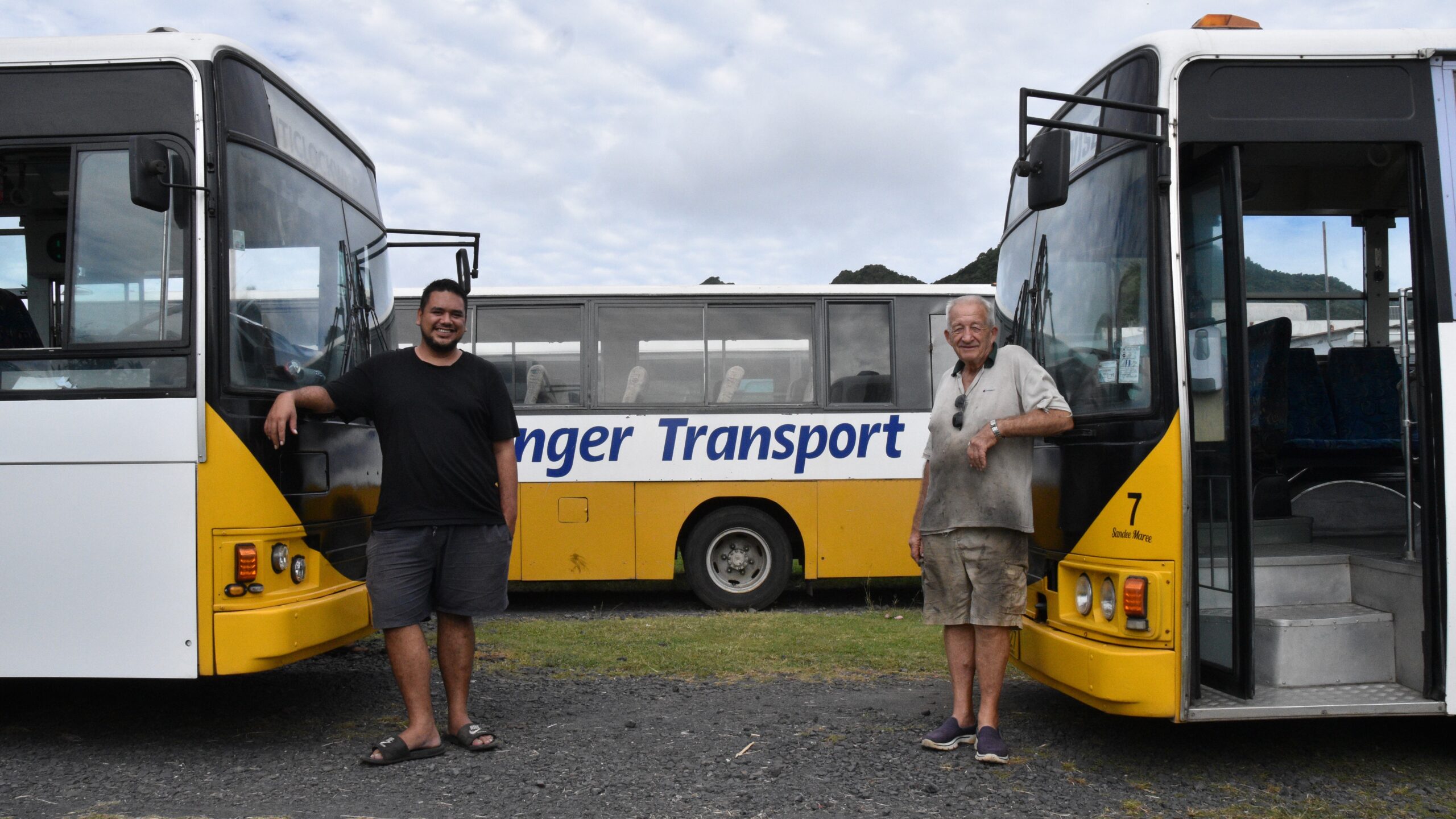Long serving public service under strain as rising costs place pressure on sector
Wednesday 20 December 2023 | Written by Al Williams | Published in Economy, Local, National

Danny, left, and his father Kevin Cook, pictured in 2021, multi-task in order to keep the wheels of the business turning. PHOTO: AL WILLIAMS/21060324
A long serving Cook Islands public service has been forced to hike its prices as it struggles without government subsidies.
Cooks’ Islands Bus Passenger Transport has been operational for more than 30 years and provides public transport at subsidised rate to locals, while providing a service for visitors, including charters, and a school service for students on Rarotonga.
“It saddens us that it has come to this point but unfortunately we can no longer continue to operate effectively with our current fare structure,” the company said in a statement.
“As a result we have had to make some unavoidable changes to our fares starting January 1 2024.”
“We are extremely sorry for the inconvenience this may cause and we hope that this does not deter the use of our public bus system.”
Cooks’ Island Bus Passenger Transport Manager Danny Cook said there had been significant price increases across the board, including a recent .30c a litre spike for a litre of diesel.
“That put the nail in the coffin.”
The fleet of buses, staffed by 18, consumed about 1500 litres of diesel a week, Cook said.

Cook’s Island Bus Passenger Transport is the regular public transport service on Rarotonga for locals and visitors. 23121920
And while other forms of transport, including the recent $640,000 government charter of Lady Samoa IV, were subsidised by taxpayers, Cook said his company does not receive any subsidies.
At a bare minimum, government could look into subsidising fuel costs, so the company could look at maintaining local rates, he said.
Locals/workers currently have the option of a $20 ten ride concession, but that will no longer be available from January 1 when they will be offered contactless bus cards – fares will be then deducted at $2.50 a ride.
Other changes include the cessation of $19 student ten ride concessions, which will also be replaced with contactless bus cards – fares deducted at $2 per ride.
Visitors will also be hit with price increases with adult and child ten ride concessions going up to $35 and $25 respectively.
Visitor adult and child return passes will no longer be available.
Cook said he wasn’t looking for a hand out from government, but suggested they could help, even with the school routes.
He said there has been work going on in the background in the form of a fine tuned Land Transport Policy, and suggested things could be improved with “centralised services” or even a fleet of newer lease contract buses.
Cook Islands News reached out to the Office of the Prime Minister for comment and was referred to the Ministry of Transport.
Michelle Aisake, Director of Land Transport at the Ministry of Transport said the press release from the operator was self-explanatory, and suggested the best option for further comments was to go directly to the operator, as they were in a better position to talk about the running of their business.
“In addition, please consider consulting the administrator of the Control of Prices Act at the MFEM.”
Aisake noted it was a pricing matter, outside the control of the Transport Licensing Authority (TLA) and the Ministry of Transport (MOT).
The TLA functions were licensing activities to provide safeguards for licensed transport operators from unlimited competition and at the same time make provision to control the standard of such services. (excludes pricing of such services).
Cook Islands News reached out to Ministry of Finance and Economic Management Secretary Garth Henderson.
Cook said it had not been an easy bounce back from Covid-19, as had been reported in other sectors.
“There is no particular interest from government in land transport.”









































